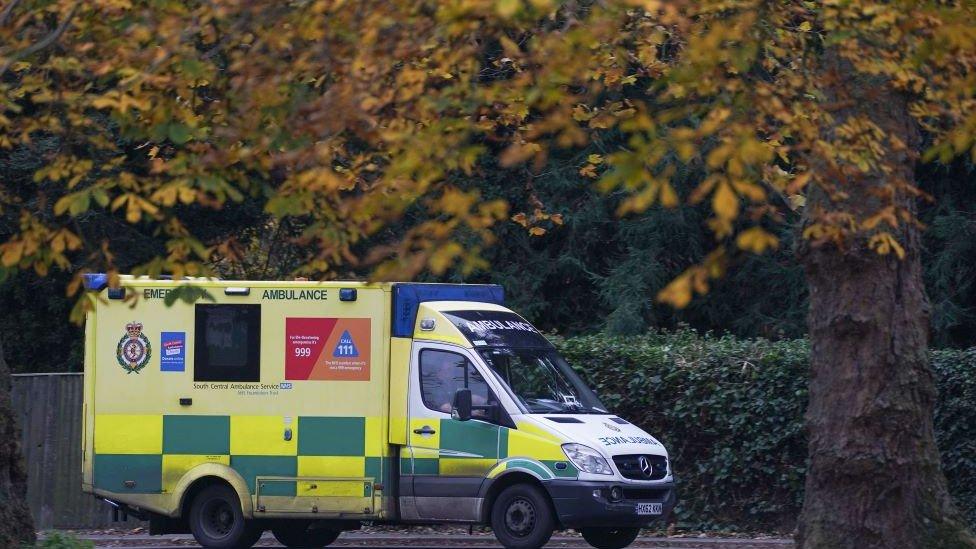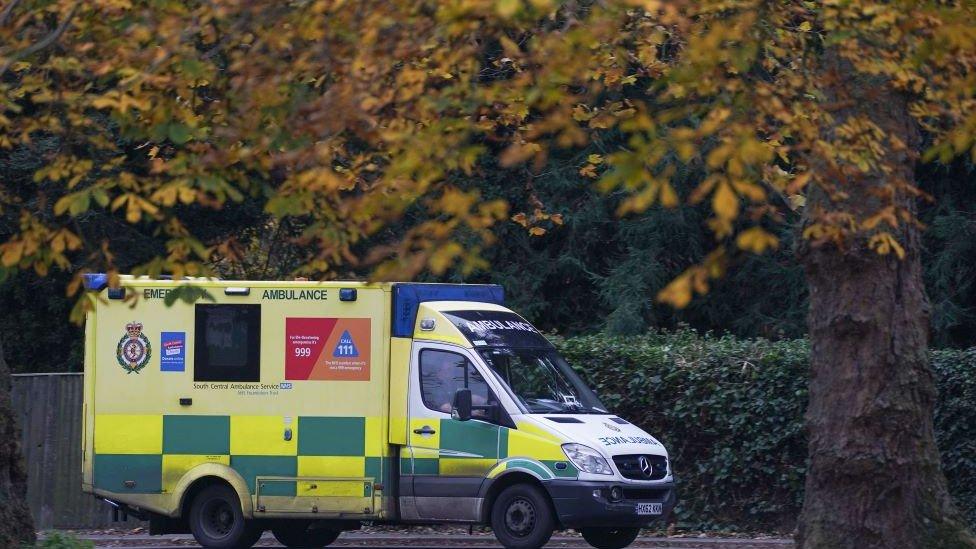Milton Keynes: 'Missed opportunities' to diagnose fatal infection, coroner says
- Published

There were missed opportunities by the ambualnce service and an urgent care centre to diagnose and escalate a man's care, a coroner said
Health workers missed a series of chances to diagnose a man's infection before his death, a coroner said.
Leonard King, 37, died on 4 May 2022 at Milton Keynes Hospital after the infection caused his airway to shut.
The coroner said there were "missed opportunities to recognise and escalate his care" by urgent care practitioners and the South Central Ambulance Service on 2 May.
He concluded that Mr King's death was "avoidable".
According to a prevention of future deaths report, external Mr King had acute epiglottitis, an infection of the tissues of the epiglottis - a flap of tissue that sits beneath the tongue at the back of the throat - which has the potential to cause "sudden, complete and fatal obstruction to the airway".
An inquest in April concluded Milton Keynes Urgent Care missed an opportunity to recognise the infection and escalate Mr King's care.
When the Southend Ambulance Service visited him later that day there was another missed opportunity to recognise he was in a "precarious position" and take him to hospital, the coroner said.
In his report Sean Cummings, assistant coroner for Milton Keynes, said prior to mass immunisation the infection was predominantly thought to be confined to young children but that the "demographic has changed and more adults are developing epiglottitis".
He wrote: "Because of the expectation among clinicians that it is a still a disease of children, there is a tendency, except in those routinely dealing with acute emergencies of the airways, to regard typical symptoms as those of a sore throat or tonsillitis and not as the harbinger of sudden catastrophic obstructive epiglottitis."
He added that: "Education and training in the movement of epiglottitis into the adult population may assist in recognition and early treatment."
A spokesperson for South Central Ambulance Service NHS Foundation Trust (SCAS), said evidence was heard in court on the rarity of the infection and at the time Mr King was assessed he did not present as needing hospital treatment.
They added the trust was "committed to learning from cases where patients and their loved ones have experienced a poor outcome".
The case will be shared internally and with national patient groups to highlight that start of a national increase of the infection in adults.
A spokesperson for the Urgent Treatment Centre, said Mr King was given an "appropriate and comprehensive examination".
"After Mr. King's death, and prior to the inquest, we committed to provide education to our clinical staff about this rare presentation in adults. We continue to educate and support our staff and endeavour to co-ordinate this learning with other healthcare providers," they added.

Follow East of England news on Facebook, external, Instagram, external and X, external. Got a story? Email eastofenglandnews@bbc.co.uk, external or WhatsApp us on 0800 169 1830
Related topics
- Published27 January 2023
